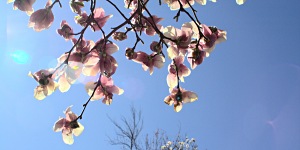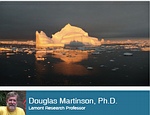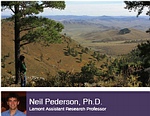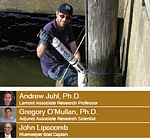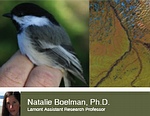LDEO Spring Public Lecture Series: 2011
Lamont-Doherty Earth Observatory will offer 4 lectures to the public this spring. All will be held at the Monell Building Auditorium on the Lamont campus. All lectures are given from 3:00 to 4:00 p.m.; admission is $5.00 at the door. A light reception will follow the lectures.
Sunday, March 6
A Delicate Balance: Antarctica and its Surrounding Oceans
Douglas Martinson, Ph.D., Lamont Research Professor
Antarctica is surrounded by ocean waters that play a tremendous role in its climate. The world’s most powerful current circulates around the Antarctic, preventing warm subtropical surface waters from reaching the coast of the continent, thus perpetuating its glacial state. At the same time, the circulation of global oceans brings deep waters to the edge of Antarctica. These deep waters have been warming strongly over the last 50 years, disrupting the balance between the ocean and the continent. Recent Antarctic expeditions have provided data allowing scientists to estimate the important implications of this disruption.
Sunday, March 13
Ancient Trees Reveal Environmental Histories
Neil Pederson, Ph.D., Lamont Assistant Research Professor
Evidence from old-growth trees and ancient timbers recovered from homes and barns in the eastern U.S. and Hudson Valley region suggests that the climate and ecology of the previous four centuries may not have been as temperate as once thought. Using dendrochronology, or tree ring analysis, researchers at Lamont-Doherty now see that great droughts have sculpted current old-growth forests. Significant insight has been achieved through the use of certain trees, like the tulip poplar, which provide much longer records than previously thought. Though climate in this region is characteristically humid and temperate, research suggests that water availability is an important driver of forest dynamics.
Sunday, March 27
Hudson River: A Swimmable Future?*
Andrew Juhl, Ph.D., Lamont Associate Research Professor;
Gregory O’Mullan, Ph.D., Adjunct Associate Research Scientist;
John Lipsdcomb, Riverkeeper Boat Captain
Since the passing of the Clean Water Act, New York has made significant investments in wastewater treatment infrastructure and watershed management along the Hudson River estuary, leading to measurable improvements in water quality and ecosystem health. As water quality has improved, demand for public access and recreation on the river has also increased. O’Mullan and Juhl’s water sampling has shown, however, that intermittent sewage contamination persists throughout the estuary. Along with their colleague John Lipscomb, they will discuss findings from the Hudson River Estuary Program, including potential challenges and opportunities for improved management over the next decade.
*This lecture is sponsored by the Lamont-Doherty Alumni Association
Sunday, April 3
Climate Change in Arctic Tundra: From Wildfire to Songbirds
Natalie Boelman, Ph.D., Lamont Assistant Research Professor
The effect of rising summer air temperatures on Arctic flora and fauna may be particularly dramatic because of the low temperatures to which life has adapted in this region. In 2007, a vast and severe wildfire occurred in the Alaskan tundra—a characteristically wet ecosystem. The event was unprecedented, but as global warming continues, tundra fires of this magnitude may become increasingly common. Scientists make use of satellite imagery to understand the ecological consequences of such fires on these remote landscapes. Arctic warming also alters the timing of spring snowmelt and vegetation growth, triggering a cascade of changes that may impact the songbirds that winter in our backyards and migrate to the Alaskan tundra to breed every summer.
The Monell building is wheelchair-accessible. Due to space limitations, registration is recommended. For registration and more information, contact: (845) 365-8998 or events@LDEO.columbia.edu.

